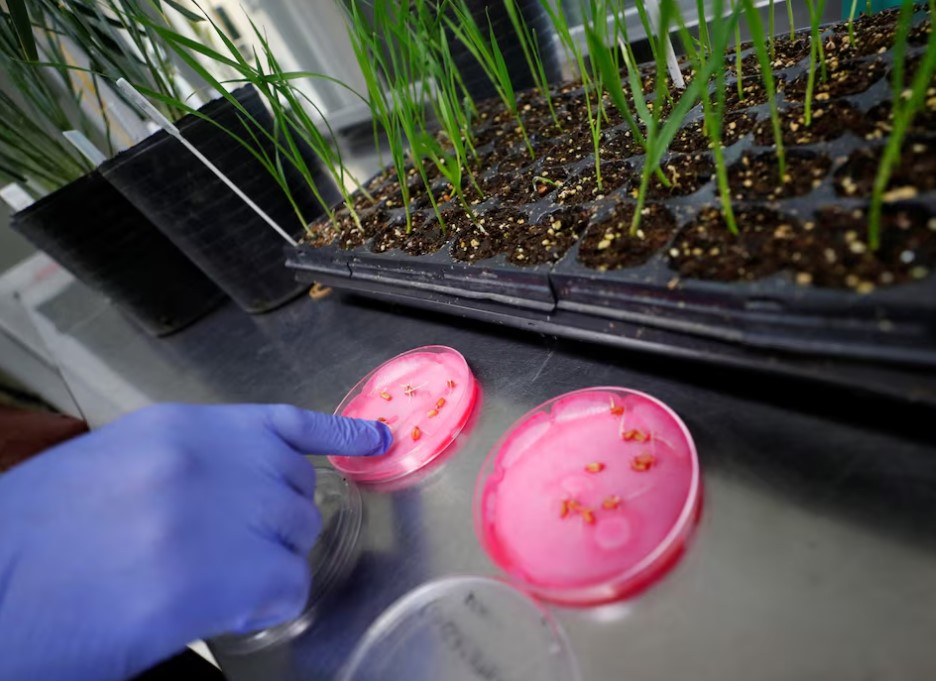High Court rejects petitions challenging lifting of GMO ban

The court ruled that the matter had already been resolved by the Environment and Land Court in 2023.
The High Court has dismissed petitions challenging the lifting of a ban on genetically modified organisms (GMOs), ruling that the matter had already been resolved by the Environment and Land Court in 2023.
The decision, issued by Justice Lawrence Mugambi on Thursday, came in response to cases questioning the safety of GMOs, particularly regarding potential impacts on health, animals, and biodiversity.
More To Read
- Delayed GMO rollout cost Kenya Sh4.1 billion yearly - study
- Mutahi Kagwe: Only locally developed GMOs will be allowed in Kenya
- State invites public input on proposed release of GMO maize
- Battle to stop GMO foods in Kenya lands in Court of Appeal
- Government introduces new GMO regulations after High Court lifts ban
- Authority issues new guidelines for importing GMO animal feeds in Kenya
The legal challenge followed an October 2022 decision by the Kenyan Cabinet to end a 10-year prohibition on biotechnology foods, a move that raised public concerns and led to court cases.
However, Justice Mugambi noted that the Environment and Land Court previously addressed the issues and found that the government had implemented adequate safety protocols.
In a 2023 ruling, Justice Oscar Angote of the Environment Court upheld the government’s actions, citing a "robust biosafety regulatory framework" with structures in place to assess any GMO applications before the importation or cultivation of such crops.
“Evidence before me has shown that the country has put in place a robust framework with inbuilt structures which must be met before they consider the use of GMOs,” Justice Angote stated.
Dismissing the recent petitions, Justice Mugambi declared the matter “res judicata,” indicating that it had already been judicially decided.
"The court hereby finds that the current petition is res judicata. The same is struck out with no orders as to costs,” he said.
Potential risks
Previously, the Kenya Peasants League, a lobby group representing small-scale farmers, had filed a petition challenging GMO imports, arguing they posed potential risks.
However, Justice Angote dismissed the case in October 2023, citing insufficient evidence to substantiate claims that GMO imports would harm public health.
Justice Angote highlighted that the Kenyan public had participated in GMO discussions through forums at the Kenyatta International Convention Centre and official gazette notices.
He noted that the petitioner’s claims regarding the unauthorised import, cultivation, and export of GMO maize were unsupported, adding, “There is no evidence presented before the court by the petitioner to show that the fourth respondent is already engaged in food cultivation, processing, import, and export.”
The court also pointed out that existing laws and frameworks regulate GMOs both domestically and internationally, making it unlikely that authorities would allow any unchecked risks.
“Kenya has several institutions tasked with dealing with the GMO issue in its entirety, so it cannot be true that all would conspire to expose the population to a disaster," Angote said.
Citing these precautions, the court ruled against the petitioner, affirming that the regulatory framework provides comprehensive evaluation processes for GMO safety, supported by international biosafety assessments.
“This court has not been shown any evidence that the respondents and institutions violated the laws and regulations on GMO foods,” Justice Angote ruled then, dismissing the petition.
Top Stories Today













































